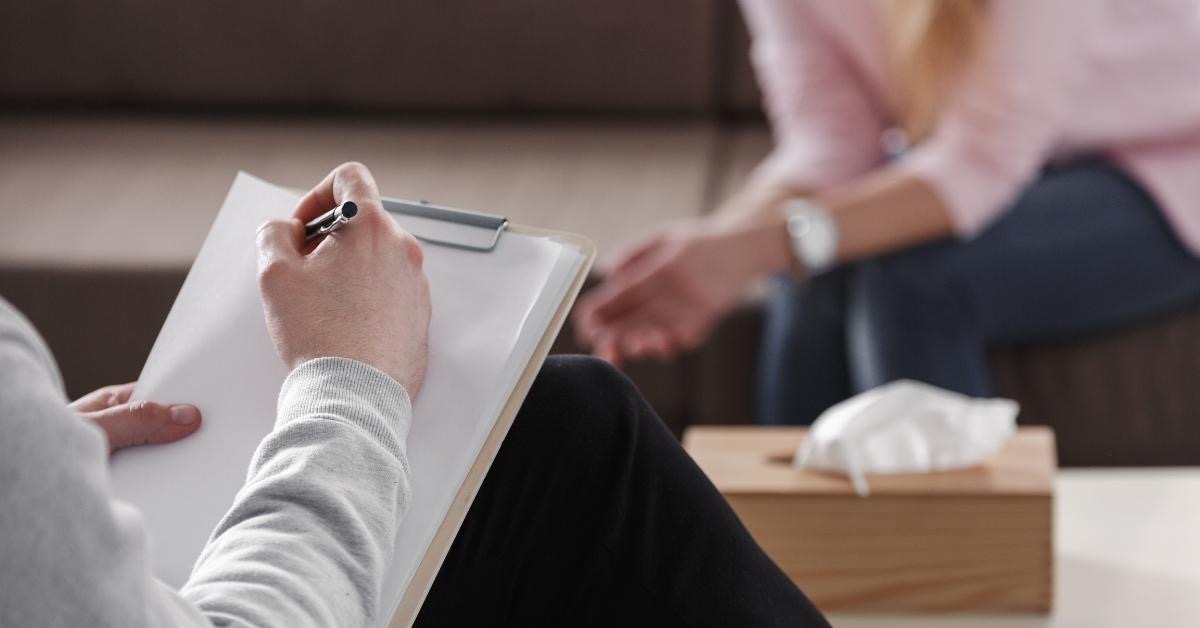
Situational depression disorder is common in the United States. In the most profound examples, cases skyrocket in the aftermath of disasters like Hurricane Katrina, tornado devastation in the Midwest U.S., school shootings, and so many other catastrophes. Over the years, the numbers of depression cases have predictably soared in the wake of such public crises from averages below 10% to mind-boggling numbers as high as nearly 33% in the affected populations. That’s 1 in 3 adults in those areas! These shocking escalations in cases are due to the radical changes in life circumstances caused for so many people by the overwhelming events.
Situational Depression Definition
Situational depression, sometimes called reactive depression, is an adjustment disorder that can cause people to have difficulty adjusting to daily life after a major change in an individual’s life. For example, having a new baby, relocating to a new city, loss of an important relationship, death of a loved one, a severe accident, job loss, or other kinds of trauma.
Symptoms typically start within a few months of the triggering event and are similar to clinical depression but not as severe. Clinical depression is a more general condition not triggered only by particular stressors, and it is a longer-lasting, often a permanent condition. By contrast, symptoms of situational depression are likely to subside within a few months after the causal event is carrying the exact weight of impact on the person.
Situational Depression Symptoms
Symptoms of situational depression vary from one person to the next. The disorder can exacerbate the impact of stressful events, often causing a person suffering from situational depression to have an excessive reaction to them. The sense of overpowering stress often causes serious disruption of the individual's daily life, though not as extreme as in cases of clinical depression. Situational depression symptoms can include:
- Sense of hopelessness
- Anxiety
- Detachment, isolation
- Sadness, frequent tearfulness
- Difficulty sleeping
- Feeling stressed
- Headaches
- Fatigue
- Loss of interest in formerly favorite activities
- Stomach problems
- Difficulty focusing
- Loss of interest in eating
- Feeling overwhelmed
- Struggling to do routine daily activities
- Neglecting paying bills and doing basic tasks
- Avoiding social encounters
- High absenteeism at work or school
- Declining work or school performance
- Thoughts or attempts of suicide (rare with this type of depression)
Situational Depression Causes
Stressful events, whether positive or negative, can cause situational depression. These can include:
- Death of a loved one
- Physical illness or disease
- Problems in relationship
- Having a baby
- Job loss
- Physical assault
- Problems at school or work
- Relocating to a different city
- Financial problems
- Living in an unsafe neighborhood
- Natural disaster
- Retirement
Diagnosing Situational Depression
Your healthcare provider may diagnose situational depression based on symptoms that appear after you have experienced a form of trauma. The Diagnostic and Statistical Manual of Mental Disorders (DSM-5) lists indicators of situational depression, including:
- Excessive response to a stressor
- Depression symptoms that are not caused by other mental health problems
- Serious impact on important relationships
Mental Health Treatment for Situational Depression
Treatment for situational depression can include medications such as selective serotonin uptake inhibitors (SSRIs) like sertraline (Zoloft) or dopamine reuptake blockers, like bupropion. But, the most often preferred treatment is psychotherapy, also called talk therapy, to help develop coping skills and greater resiliency.
The latter treatment strategy helps uncover the causes of situational depression and strengthens the ability to meet future challenges without struggling with depression.
To supplement the benefits of therapy for situational depression, these healthy lifestyle habits can help in overcoming the condition:
- Maintaining good sleep habits
- Healthy exercise
- Maintaining healthy eating habits
- Relaxing and resting
- Strengthening one’s support system of family and friends
Outcomes from Treatment for Situational Depression
Most people who experience situational depression go on to enjoy the relief of a full recovery. They learn new coping methods that empower them with greater control over their general functioning. Recovery is realized when a person in situational depression treatment has gained the skills to cope effectively when confronted with a major life change without experiencing symptoms.
Depression Treatment At Pathways Real Life Recovery
Pathways provides depression treatment in our safe, serene, comfortable facility in Glenwood, Utah. Our clients receive the best depression treatment from our experienced and caring specialists. The Pathways professional staff includes Medical Doctors (MD), Trauma treatment professionals, and other healthcare providers.

